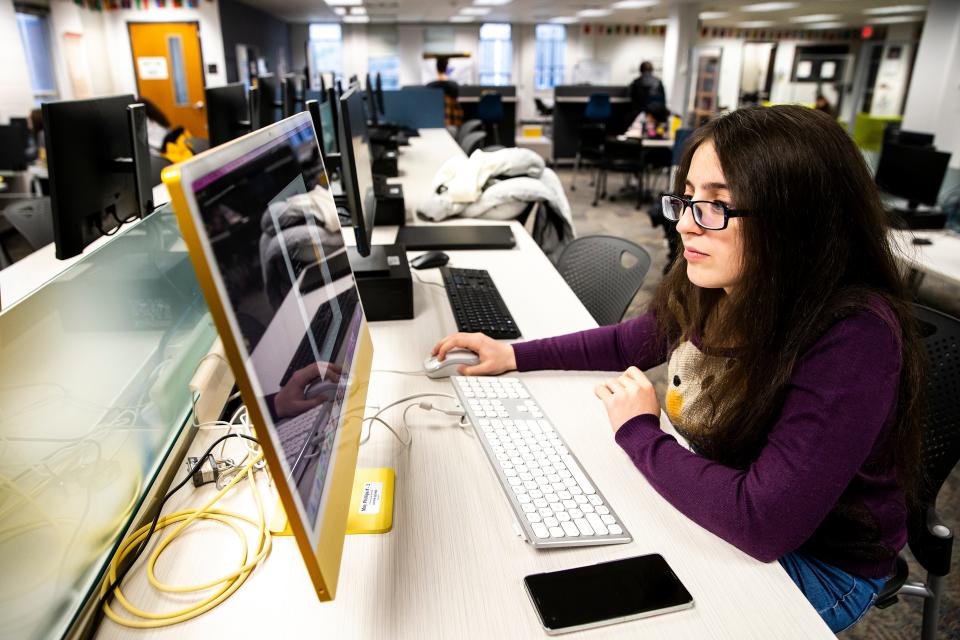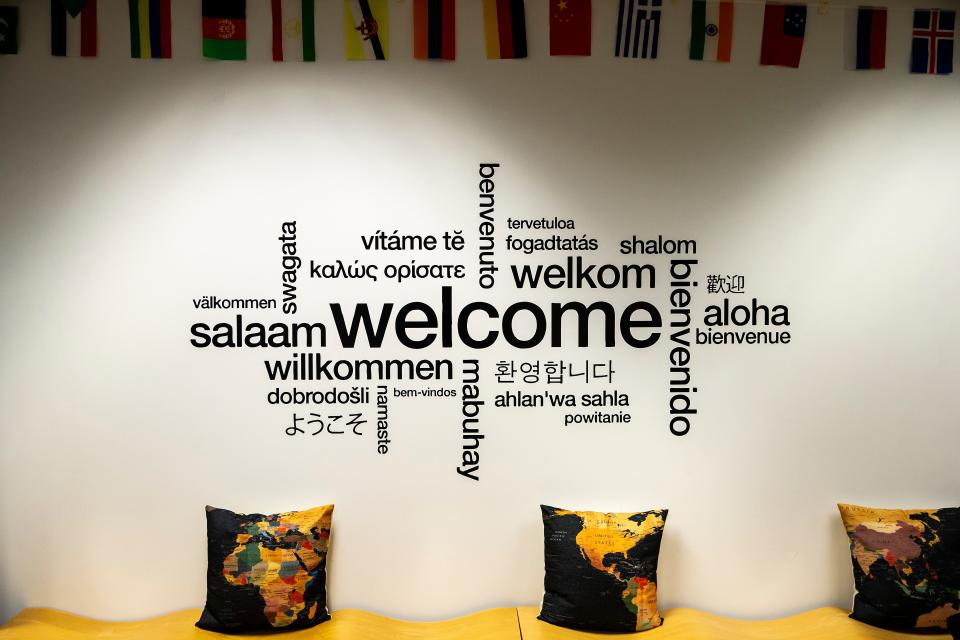Iowa City area residents share stories about immigration, cultural practices in short films
Spanish, Ukrainian, Farsi.
These are just some of the many languages Iowa City residents speak, and now, they’re sharing their stories in their native tongue thanks to a project spearheaded by University of Iowa students and faculty.
Iowa Intersections is rolling out a film series detailing the experiences of local residents, hoping to initiate conversations “about immigration, social justice, diversity and inclusion,” according to the project’s website.
What is Iowa Intersections?

Iowa Intersections is a project developed by the Center for Language and Culture Learning at UI with support from the UNESCO City of Literature in which project members interviewed, filmed, edited and translated the stories shared by Iowa City area residents for the purpose of presenting them to a wider audience.
What kinds of stories are featured in Iowa Intersections?
The project delves into the Mexican holiday Día de los Muertos as well as family traditions. Or, one Congolese man tells his experience of arriving to the Eastern Iowa Airport from his country in the middle of winter.
There are interviews from citizens of the Congo, Iran, Mexico, Sudan, Ukraine, Venezuela and Armenia.
Ani Jilavyan, a member of the Iowa Intersections team, was interviewed for the project.

Her story details attacks on Armenia and how she, a graduate student pursuing literary translation, could be helpful in her line of work, especially as she found herself separated from oved ones.
Her opportunity to share came at a time when Jilavyan found herself increasingly distracted with news about Armenia, pulling her away from her classes. She felt the urge to share her thoughts, regardless of whether listeners could actually help or not.
“Even though it is really hard to believe that just one story will change a lot of people or something like that, (it) still gives hope that maybe talking about it will make some change,” Jilavyan said.
How did Iowa Intersections begin?
Claire Frances, director of the Center for Language and Culture Learning, was working on a project in 2021 mapping the multilingual communities in Iowa City and couldn't seem to track down those she sought.
Further analysis of the project and its limitations of a two-dimensional digital map. Taking inspiration from Humans of New York, where thousands of New Yorkers were photographed and interviewed on the city’s streets, Frances wanted to bring voice into what would become Iowa Intersections.
“I think it’s so important to share stories in one’s own language,” she said.

Maria Morroquin Perez, a graduate student involved in Iowa Intersections, used oral history methodologies she learned courtesy of Aiden Bettine, former UI archivist, while interviewing subjects.
Morroquin Perez had worked at Open Heartland, a volunteer-led organization in Iowa City that supports Mexican and Central American immigrants in the area, as part of an internship. There, she met community members and explained the project, how the video would be used and why the work mattered.
“They're telling you a story about themselves, about their family, about their community and it's a vulnerable state to be (in) and to be willing to share those experiences,” she said.
Frances also found interview subjects through Kirkwood Community College to help kick-start the project.
The Iowa Intersections team invited guests to speak in their native languages, even if they didn’t speak the language.
Jilavyan explained how in her experience, it’s easier to "stay true” to herself when she speaks in Armenian. After all, she thinks in Armenian, not English.
Why does the work in Iowa Intersections matter?
Azul Trejo Zetina, graduate assistant for the Center for Language and Culture Learning, entered the project in the fall of last year. Zetina has a background in documentary studies and filmmaking and has assisted with editing the videos, among other responsibilities.
She recalled how she edited one interviewee’s video only to see them in person afterwards.
“I was telling her that it felt like I already knew her and she just gave me a hug and we started chatting,” Zetina said. “It was a nice way of seeing how these videos do create a stronger sense of community, even with people who you don't actually know but you feel like you could know.”
As audiences learn from these short stories, stories that touch on cultural practices to immigration to America, so do the students and faculty part of Iowa Intersections.
Morroquin Perez explained how her interview with the subject who spoke about Día de los Muertos revealed multiple stories that related to different topics beyond the holiday.
She considered how she could use these stories in the future from a pedological aspect.
“You can take a video and teach (people) about the day of the dead,” she said. “You could take the same video and teach them about family separation.”
The videos can also serve as the basis for learning activities Iowa Intersections team members can use in future teaching, exploring how people tell stories, idiomatic expressions, or, for example, the actual subject matter can be used in courses on immigration and migration, according to Frances.
More: A family of 3 fled Ukraine. Now, they live in Iowa City, where community members stepped up to help.
Where can I view these stories?
The Iowa Intersections team first premiered one of their digital short stories at the Iowa City Book Festival last year.
The team has since developed a website where people can read more about the project and view some of the videos.
Iowa Intersections' website: https://dsps.lib.uiowa.edu/iowaintersections/
Paris Barraza covers entertainment, lifestyle and arts at the Iowa City Press-Citizen. Reach her at PBarraza@press-citizen.com or 319-519-9731. Follow her on Twitter @ParisBarraza.
This article originally appeared on Iowa City Press-Citizen: University of Iowa students, faculty, lead Iowa Intersections project

